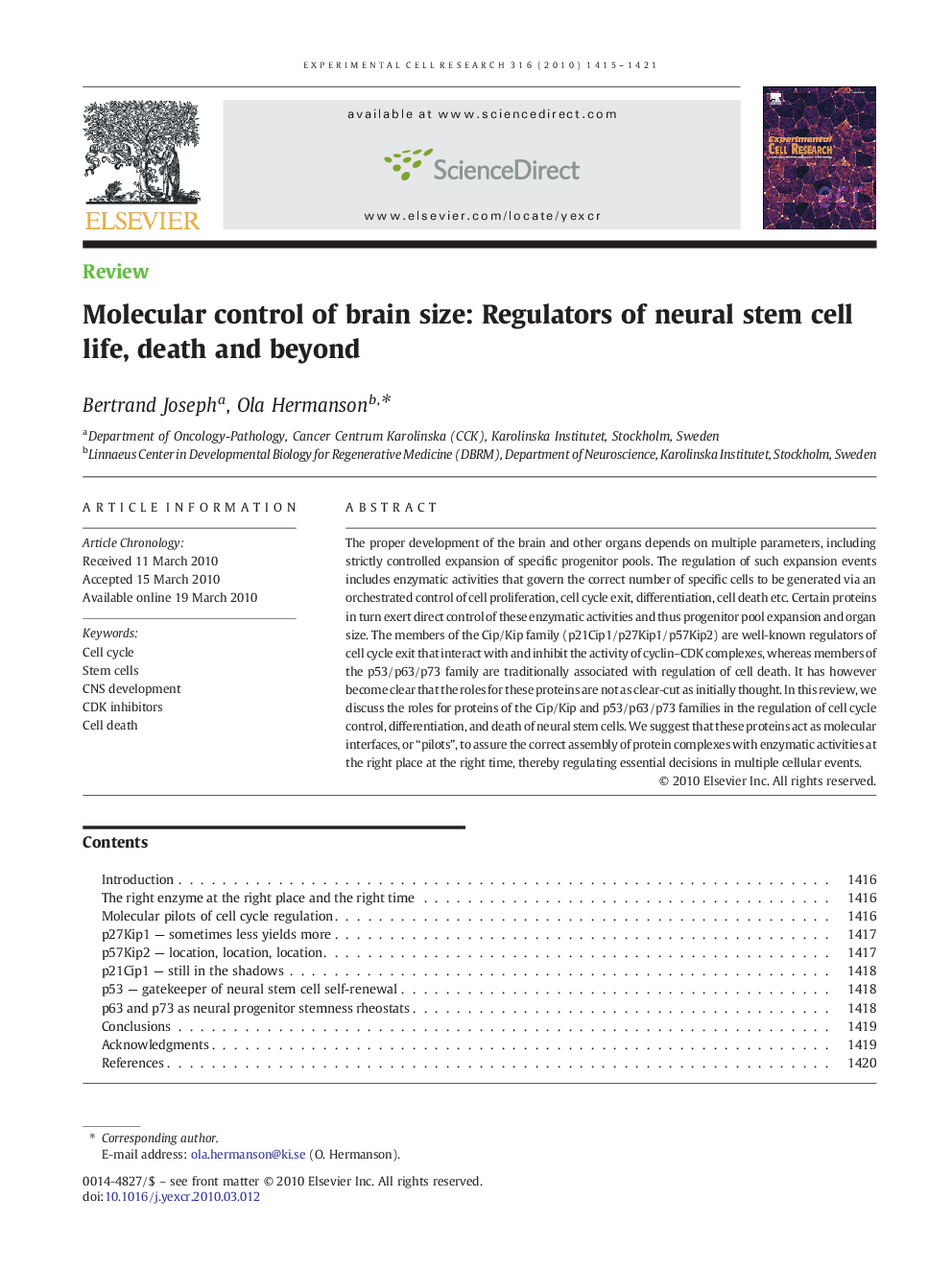| Article ID | Journal | Published Year | Pages | File Type |
|---|---|---|---|---|
| 2131489 | Experimental Cell Research | 2010 | 7 Pages |
The proper development of the brain and other organs depends on multiple parameters, including strictly controlled expansion of specific progenitor pools. The regulation of such expansion events includes enzymatic activities that govern the correct number of specific cells to be generated via an orchestrated control of cell proliferation, cell cycle exit, differentiation, cell death etc. Certain proteins in turn exert direct control of these enzymatic activities and thus progenitor pool expansion and organ size. The members of the Cip/Kip family (p21Cip1/p27Kip1/p57Kip2) are well-known regulators of cell cycle exit that interact with and inhibit the activity of cyclin–CDK complexes, whereas members of the p53/p63/p73 family are traditionally associated with regulation of cell death. It has however become clear that the roles for these proteins are not as clear-cut as initially thought. In this review, we discuss the roles for proteins of the Cip/Kip and p53/p63/p73 families in the regulation of cell cycle control, differentiation, and death of neural stem cells. We suggest that these proteins act as molecular interfaces, or “pilots”, to assure the correct assembly of protein complexes with enzymatic activities at the right place at the right time, thereby regulating essential decisions in multiple cellular events.
